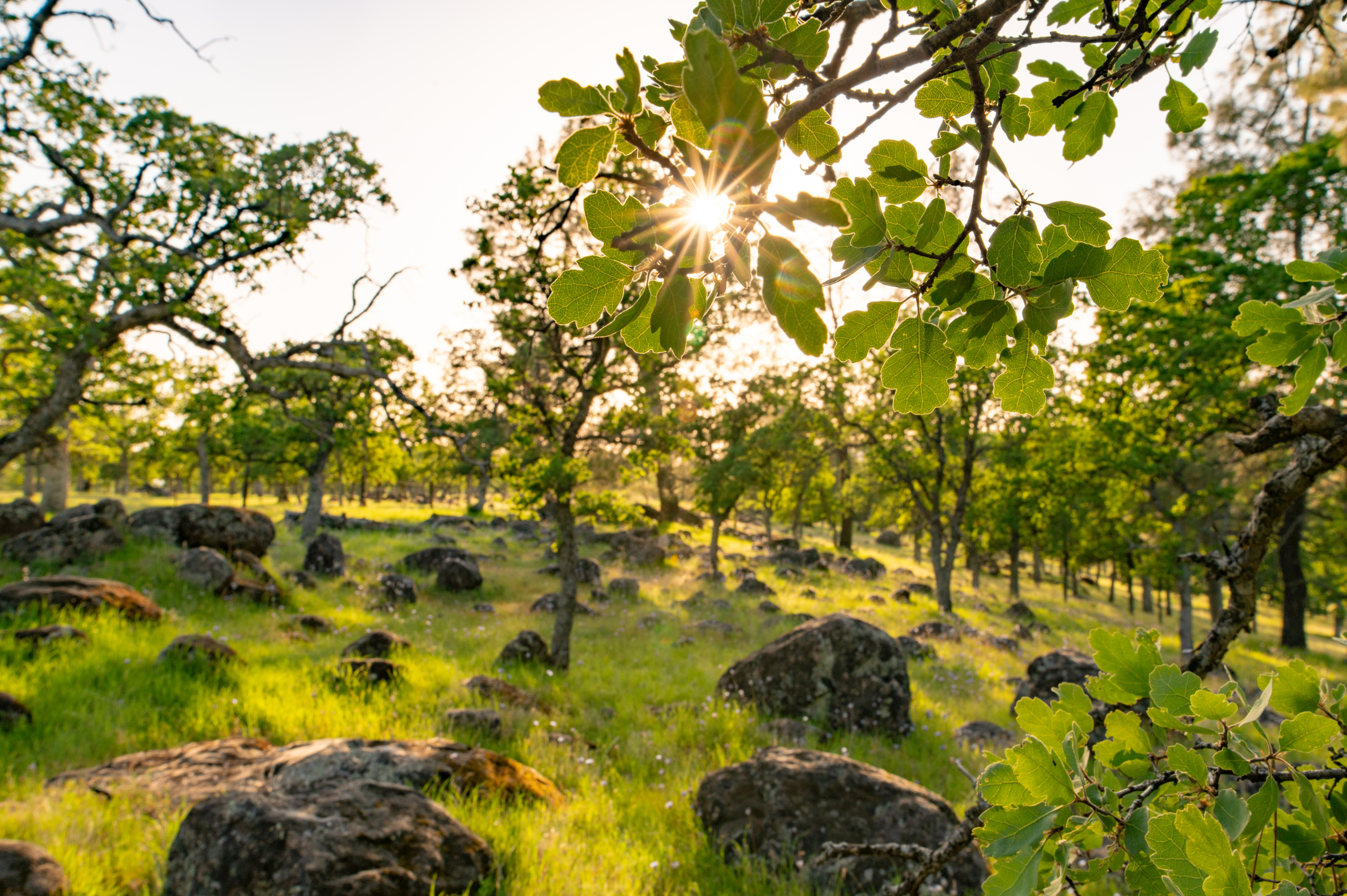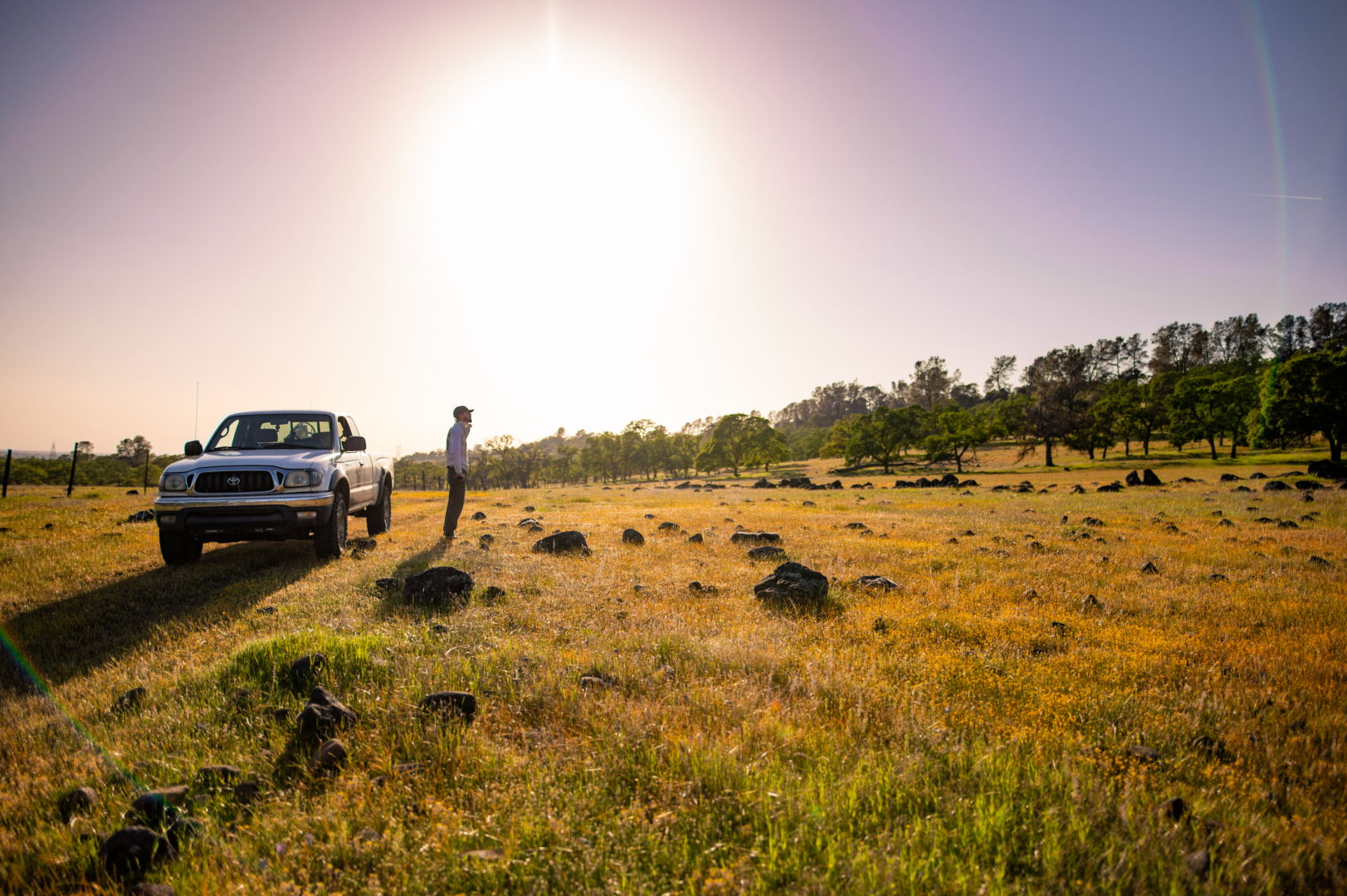Land Donation Doubles Size of BCCER, Now CSU’s Largest Ecological Reserve

(Jessica Bartlett/University Photographer)
A private donation has added thousands of acres to California State University, Chico’s Big Chico Creek Ecological Reserve (BCCER)—transforming it into the CSU system’s largest contiguous ecological reserve or field station. The land gift also makes BCCER one of the largest college- or university-operated reserves in the entire state.
Gifted by a donor who wishes to remain anonymous, the additional land adds 3,885 acres to the reserve’s 3,950 acres—nearly doubling its size to 7,835 total acres. Exactly how this expansion will be best utilized is currently being determined, but CSU, Chico Ecological Reserves Director Eli Goodsell said the University, the Reserve and its partners are eager to explore the many options—with the leading goals of ecological stewardship and conservation in mind. Goodsell said that over the next two to three years, Ecological Reserve staff will engage on- and off-campus collaborators to collect baseline data and establish a current-conditions report to determine how to best steward the resources.
“While a management plan will be developed in the next few years to identify and prioritize ecological goals for the property, the long-term conservation of the blue oak woodlands and associated wildlife species will be paramount,” Goodsell (Criminal Justice, ’07; MA, Environmental Policy and Planning, ’11) said.
BCCER, which is owned by Chico State Enterprises, is located on the ancestral land of the Mechoopda Indian tribe. It has been part of the University since 1999, serving students, researchers and the public on its expanse adjacent to Upper Bidwell Park, roughly 14 miles east of CSU, Chico.
Renowned for its diverse habitat for hundreds of species of plants and animals, it serves as a living laboratory for both students and curious citizens, and provides miles of trail recreation for the ambitious outdoorsperson. BCCER can now provide the University and other area schools with even more opportunities to steward its remarkable woodland and conduct important field research in a number of critical areas.

“This unparalleled outdoor laboratory will be utilized by students and faculty to perform cutting-edge research and receive hands-on experience in regenerative agriculture, habitat restoration and stewardship, as well as carbon sequestration and wildfire mitigation,” Goodsell said.
This land donation, the largest by acreage in the University’s 134-year history, comes on the heels of its biggest cash gift—a $1 million cash donation to the reserve by Professor Emeritus Wes Dempsey and his wife, Phyllis, to establish an educational endowment in honor of their son, David.
Donations like the land gift and the Dempsey’s endowment give BCCER substantial support it can count on to advance its strategic goals—but BCCER also benefits from philanthropic gestures of all kinds. Whether adopting an acre at $10 a month or leaving a legacy with a planned gift, community support is imperative to propelling innovation and adaptation for an increasingly threatened environment, and Goodsell expressed deep appreciation for both the anonymous donor and other supporters in the community who continue to invest in the future of the reserve.
“This land gift elevates the Big Chico Creek Ecological Reserve to a place of prominence, with its increased acreage and ability to do more of the consequential work it already does,” said CSU, Chico President Gayle Hutchinson. “With fire mitigation exercises and hands-on outdoor classroom experiences for our students—as well as teaching the scientists and environmental stewards of tomorrow—the University is prepared to meet the ecological and conservation challenges of the 21st century.”


